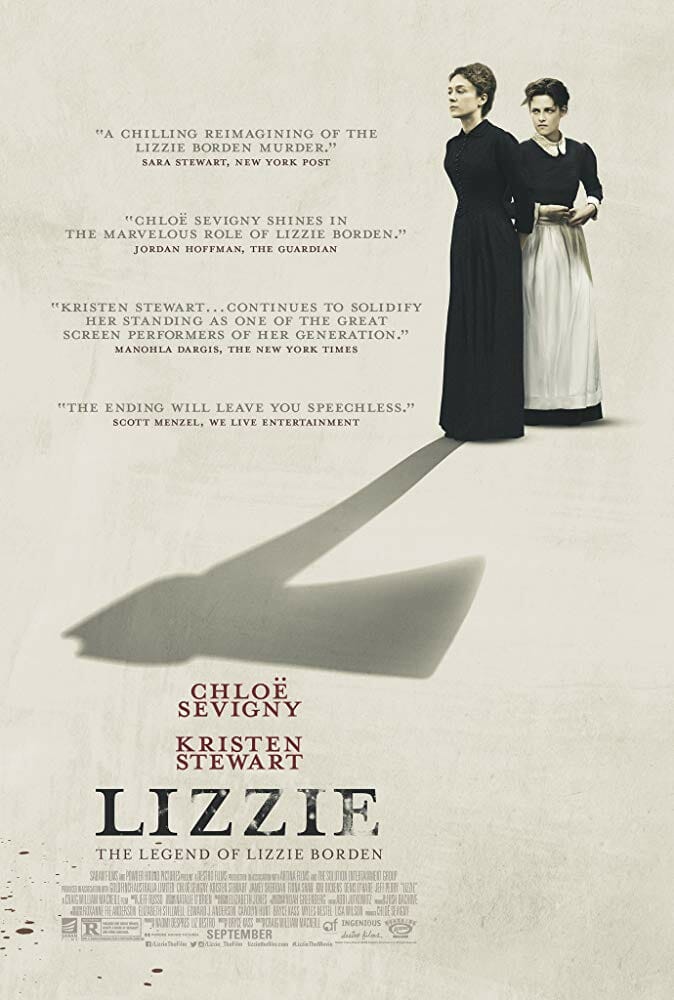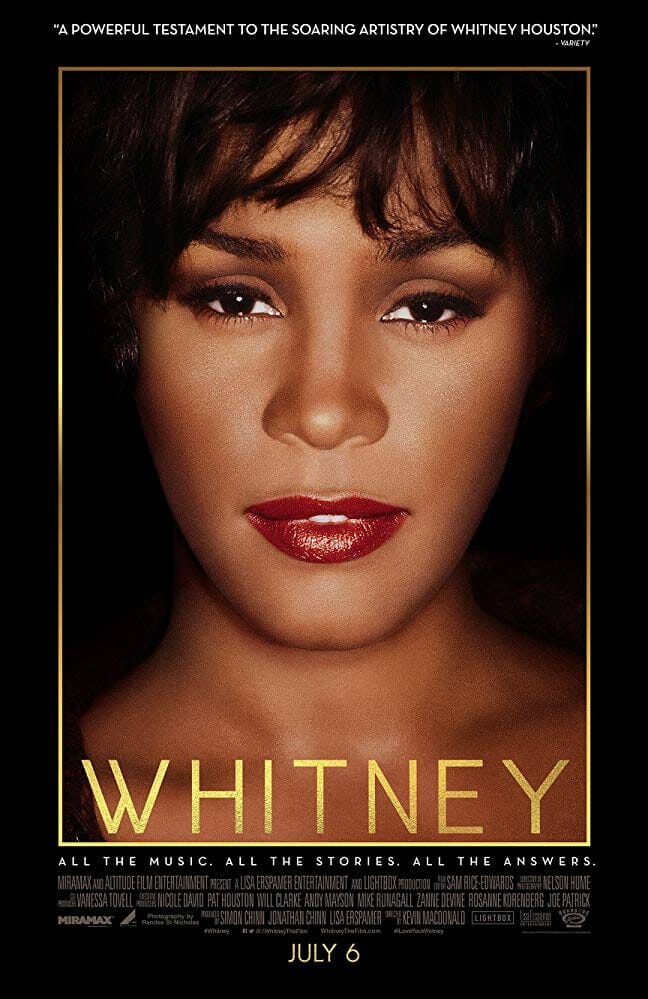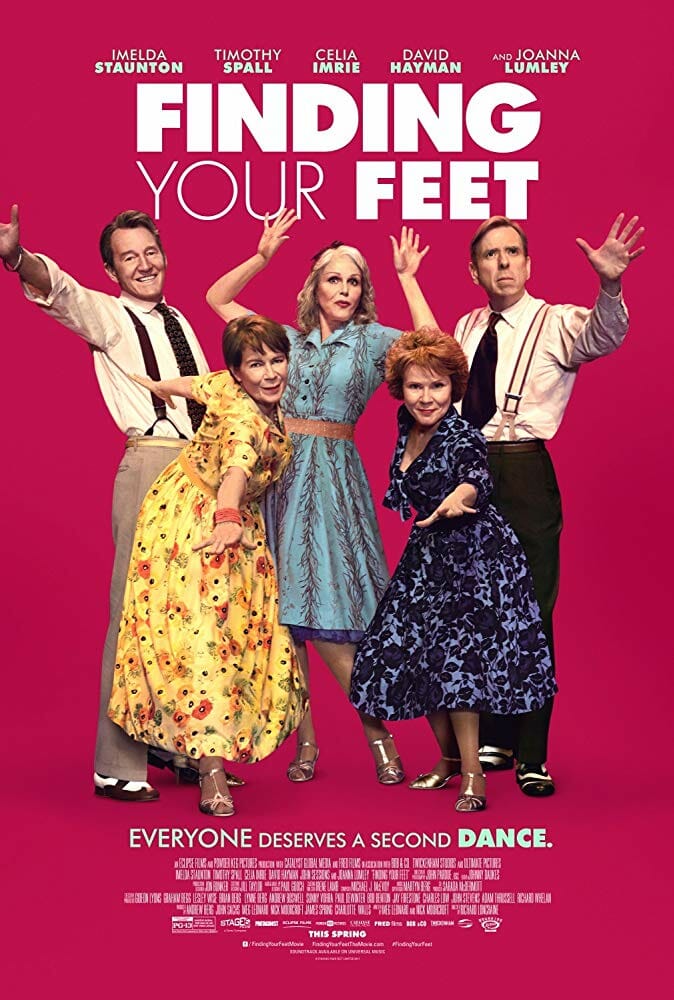The youngest studio tracked in GLAAD’s report, Lionsgate was founded in 1997 by Frank Giustra. In its slightly over two decades, Lionsgate has produced and distributed major blockbusters, and acquired studios such as Summit Entertainment and Pantelion, which focuses on films for a Latinx audience.
Lionsgate started off with releasing the 1997 film The Pillow Book, in which Ewan McGregor plays a bisexual man. Other LGBTQ-inclusive films from the studio include Gods and Monsters (1998), But I’m a Cheerleader! and Urbania (2000), Lost and Delirious and All Over the Guy (2001), Happy Endings (2005), Precious (2009), The Perks of Being a Wallflower (2012), American Ultra, Freeheld (2015), and Un Padre No Tan Padre (2017).
A Simple Favor
Vito Russo Test: Fail
Widest theatrical release: 3,102 theaters
Towing the line between mystery and comedy, A Simple Favor follows bored mom Stephanie’s search after the disappearance of her new best friend, the mysterious Emily. Over the course of the film, Stephanie finds out that Emily has had several different identities – one was as the muse of lesbian painter, Diana. It seemed that Diana and Emily had a sexual relationship in exchange for Diana paying off Emily’s debt and tuition. Additionally, in a flashback, Emily comforts an upset Stephanie with a kiss on the lips, and repeatedly calls her “baby.” As more is uncovered about Emily, it is clear she sexually manipulates people to get her way, including her husband Sean, Diana, and even Stephanie. There is a lack of feeling or desire toward the women Emily seduces, thus GLAAD did not count her as bisexual. The repeated trope in media of women only sleeping with other women to get something they want or need – thus directly linking their queer relationship with a negative behavior – is one audiences have seen too many times.
OPPORTUNITIES AHEAD
Lionsgate is set to release an English-language version of their 2013 Spanish-language hit Instructions Not Included. As GLAAD spotlighted in the 2014 SRI, the original film was notable for including a lesbian couple with a significant role in the film. However, it also contained a cheap punchline at the expense of a trans woman. The new version of the film would do well to keep and update the story of the lesbian characters and drop the outdated transphobic gag. An adaptation of Erin Morgenstrern’s best-selling novel The Night Circus is also in the works at Lionsgate. The novel contains two queer characters of color, Chandresh who is gay and Tsukiko who is a lesbian. It is essential that they and their queer identities remain in the film, showing LGBTQ people as an integral part of the fantasy genre.
A new franchise coming from Lionsgate is Peter Jackson’s adaptation of Chaos Walking, a dystopian young adult trilogy. In the novels, two men, Ben and Cillian, raise protagonist Todd (Tom Holland) in a dystopian world with no women. Author Patrick Ness has confirmed that their relationship is a romantic one. Both these men are listed as cast in the film adaption (Demián Bichir, Kurt Sutter); their relationship should be a part of the story when it is translated into film, and hopefully expanded upon with more depth. The film was previously announced to have a March 2019 release date, but now the release is rumored to be some time in 2020.
Roadside Attractions, founded in 2003 by Howard Cohen and Eric d’Arbeloff, specializes largely in independent films. In 2007, Lionsgate bought a portion of the company. Notable LGBTQ-inclusive films previously released by the studio include I Love You Phillip Morris (2010), Dear White People, The Skeleton Twins (2014), and Hello, My Name is Doris (2016).
Ben is Back
 Widest theatrical release: 162 theaters
Widest theatrical release: 162 theaters
This drama follows Ben, an addict who is temporarily home for Christmas after months of rehab, and his mother, Holly. In one sequence, Ben and Holly are tracking down people who may have had a reason to steal his dog. Ben goes to the house of an older man, who tries to get him to come inside, but Ben refuses. We find out that the man was Mr. Richman, Ben’s old history teacher, with whom he had an “arrangement” to procure OxyContin. When Holly realizes that her son traded sexual acts with an older man for drugs, she pulls over and vomits out of the car. It is disappointing that the only gay person portrayed in the film was a predatory older man and the scene could have been cut entirely.
Finding Your Feet
 Widest theatrical release: 277 theaters
Widest theatrical release: 277 theaters
The British comedy Finding Your Feet follows Sandra, a recently divorced woman, who goes to live with her sister, Bif. At one point in the film, Bif casually mentions having a “thing” with another woman, Prue. Sanda is initially shocked that Bif “swings both ways,” but her overall relationship to and opinion of her sister does not change. Though Bif doesn’t have any further romantic relationships and unfortunately passes away of cancer toward the end of the film, the casual inclusion of a bisexual older woman is an important moment.
Juliet, Naked
Widest theatrical release: 467 theaters
 Juliet, Naked is a romantic comedy following museum curator Annie, who starts up a correspondence with a has-been musician, Tucker. Annie’s sister Ros is an out lesbian who experiences several dating mishaps throughout the film, including a date with a younger woman who is implied to be dating Ros and a man at the same time. Ros also mentions kissing a married woman who she insists is a “repressed lesbian.” By the end of the film Ros finds a girlfriend who showed interest in her first, and refers to herself as a “gold star” lesbian. Though it was good to have a lesbian character, Ros’ only real trait was her lesbian identity as the character isn’t really explored in any depth, and the film makes several biphobic statements about previous women that Ros had dated.
Juliet, Naked is a romantic comedy following museum curator Annie, who starts up a correspondence with a has-been musician, Tucker. Annie’s sister Ros is an out lesbian who experiences several dating mishaps throughout the film, including a date with a younger woman who is implied to be dating Ros and a man at the same time. Ros also mentions kissing a married woman who she insists is a “repressed lesbian.” By the end of the film Ros finds a girlfriend who showed interest in her first, and refers to herself as a “gold star” lesbian. Though it was good to have a lesbian character, Ros’ only real trait was her lesbian identity as the character isn’t really explored in any depth, and the film makes several biphobic statements about previous women that Ros had dated.
Lizzie
Widest theatrical release: 240 theaters
 An interpretation of the true story of Lizzie Borden, Lizzie focuses heavily on the romantic and sexual relationship between Lizzie and her family’s maid, Bridget. Lizzie’s father is abusive toward both of the women in different ways, including sexually assaulting Bridget. After he catches Bridget and Lizzie having sex, he threatens and shames both of them. Lizzie concocts a plan to murder her father and stepmother, and Bridget initially goes along with it, though she gets cold feet and eventually backs out. The murders themselves are very graphic and violent, with Lizzie’s naked body being splattered with her parent’s blood as she repeatedly stabs them. Bridget confronts Lizzie in her prison cell in the end, reminding her that they do not live in a world or time where the two of them could ever be together. Bridget leaves town, and the film ends with her on a train, thinking of the memories her and Lizzie had together. The film overall presents violence and hopelessness associated with Lizzie and her queerness.
An interpretation of the true story of Lizzie Borden, Lizzie focuses heavily on the romantic and sexual relationship between Lizzie and her family’s maid, Bridget. Lizzie’s father is abusive toward both of the women in different ways, including sexually assaulting Bridget. After he catches Bridget and Lizzie having sex, he threatens and shames both of them. Lizzie concocts a plan to murder her father and stepmother, and Bridget initially goes along with it, though she gets cold feet and eventually backs out. The murders themselves are very graphic and violent, with Lizzie’s naked body being splattered with her parent’s blood as she repeatedly stabs them. Bridget confronts Lizzie in her prison cell in the end, reminding her that they do not live in a world or time where the two of them could ever be together. Bridget leaves town, and the film ends with her on a train, thinking of the memories her and Lizzie had together. The film overall presents violence and hopelessness associated with Lizzie and her queerness.
Whitney
Widest theatrical release: 541 theaters
 A documentary that the dives into the rise, fame, and ultimate tragedy surrounding singer Whitney Houston, Whitney also spends time talking about the relationship between Whitney and her friend and rumored lover, Robyn Crawford. Testimonies of Whitney’s friends and family say that Whitney and Robyn were in a romantic relationship, though Whitney was dating various men as well. Whitney herself denied it in interviews, but Robyn was an integral part of her life, and footage and interviews showed the connection between the two. A friend described Whitney’s sexual orientation as “fluid.” Ultimately, according to the film, following an ultimatum from Robyn, Whitney chose to remain with her husband Bobby Brown.
A documentary that the dives into the rise, fame, and ultimate tragedy surrounding singer Whitney Houston, Whitney also spends time talking about the relationship between Whitney and her friend and rumored lover, Robyn Crawford. Testimonies of Whitney’s friends and family say that Whitney and Robyn were in a romantic relationship, though Whitney was dating various men as well. Whitney herself denied it in interviews, but Robyn was an integral part of her life, and footage and interviews showed the connection between the two. A friend described Whitney’s sexual orientation as “fluid.” Ultimately, according to the film, following an ultimatum from Robyn, Whitney chose to remain with her husband Bobby Brown.
Later in the documentary, a family friend of Whitney asserts that her aunt had molested Whitney at a young age, and that was why she was reluctant to ever come out herself. Linking sexual assault to sexual orientation is a troubling and inaccurate claim.
Overall, the documentary purports to show the queerness of an all-time great in the pop canon, and highlighted the ways that homophobia contributed to her tragic downfall. Out newscaster Don Lemon also makes a brief appearance in archival footage.


 Widest theatrical release: 162 theaters
Widest theatrical release: 162 theaters Widest theatrical release: 277 theaters
Widest theatrical release: 277 theaters










